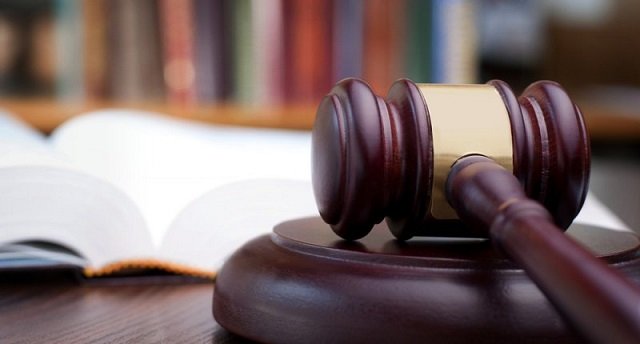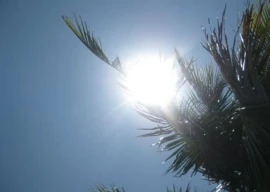
Authorities insist that the purpose of the special courts is to expedite the prosecution of building laws' violations because hundreds of cases are left pending at regular courts for a long time. However, the presence of special courts has proven to be ineffective, particularly when it comes to consumer courts and anti-encroachment tribunals.
According to sources at the provincial law department, most of the consumer and anti-encroachment courts are either non-functional or have no cases to deal with.
Last year, the Sindh government had formally set up 27 consumer courts in the province and also appointed judges for them, spending millions of rupees each month to meet the operational expenses of the court. However, the majority of the courts saw no proceedings.
Similarly, the provincial government also established three anti-encroachment tribunals under the Anti-Encroachment Act 2010. These courts were set up in three major cities of the province, namely Karachi, Hyderabad and Sukkur. However, the percentage of conviction at the courts has remained almost nil, even in Karachi, which has been suffering from a massive issue of illegal encroachments for the past several years.
Despite being almost non-functional, the Sindh government has been increasing the number of special courts at a time when the Chief Justice of Pakistan is making efforts to improve the quality of regular courts.
According to the Sindh law department's documents, different types of special courts have been set up in the province, including anti-terrorism courts, labour courts, anti-corruption courts, anti-encroachments courts and consumer courts, among others.
Speaking to The Express Tribune, Sindh local governments secretary Roshan Shaikh said that special courts are being set up under the Sindh Local Government Ordinance 2001 to prosecute violators of building control laws.
"The Sindh cabinet has recently accorded approval for setting up these courts as they are much needed in the province, particularly in bigger cities where violations of building control laws are common," he said.
Shaikh added that hundreds of cases pertaining to violations of building control laws in Karachi have been pending at regular courts for many years. Therefore, the establishment of special courts was deemed necessary by the government for the timely disposal of cases.
"Initially, two courts will be set up, one each in Karachi and Sukkur. All the cases of building laws violations, which have been pending at regular courts, will be transferred to these special courts soon after these courts are formally established," he added.
Answering a question, he said that the district and session judges (DJs) or additional district and session judges will be appointed for these courts.
Legal practitioners, however, have a different point of view about the need for special courts. Senior lawyer Ayaz Tunio, who has also served as Sindh Prosecutor General, said that regular courts headed by civil judges are already convicting offenders for different crimes under the Pakistan Penal Code (PPC). Special courts being set up against violations of building control laws will also punish violators under the same PPC law.
"The anti-encroachment courts operating in the province are also headed by the DJs. Therefore, these courts have staff and other facilities equal to that of regular courts," Tunio said. "However, special courts have a fewer number of cases."
He also said that the government had set up consumer courts but they have no cases for hearing. Tunio believed that cases about building laws violations could be prosecuted at regular courts and violators could be handled through help of local police.
Published in The Express Tribune, December 9th, 2019.

1730462074-0/BeFunky-collage-(10)1730462074-0-165x106.webp)

1730377325-0/netflix-(2)1730377325-0-165x106.webp)


1730447650-0/Copy-of-Untitled-(2)1730447650-0-270x192.webp)










COMMENTS
Comments are moderated and generally will be posted if they are on-topic and not abusive.
For more information, please see our Comments FAQ